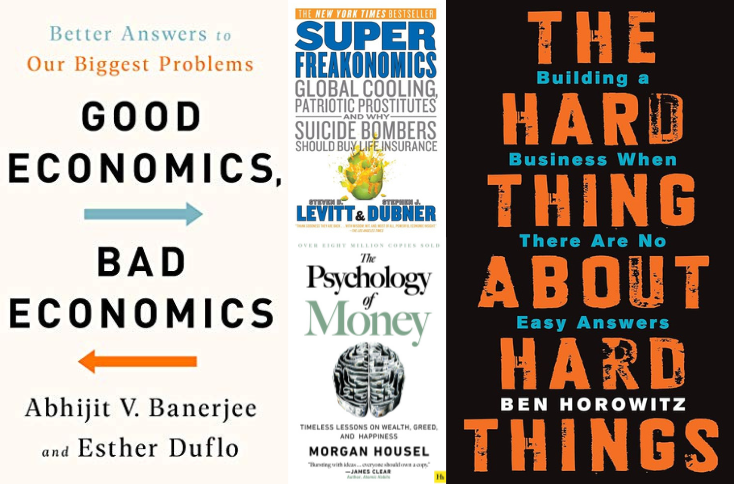
Twenty-three years ago, one of the worst cases of fraud in the business world occurred—the Enron scandal. After leading investors astray with fraudulent accounting that misrepresented the performance of the company, Enron’s misdeeds were eventually exposed, and the company declared bankruptcy in December 2001. At the time, it was the largest corporate bankruptcy in U.S. history.
Thousands of employees lost their jobs, tens of billions of dollars were wiped out, and Arthur Anderson—then one of the five largest audit and accountancy firms in the world—was shut down.
The Enron scandal wasn’t an isolated case either. In the early 2000s, other corporate scandals by Worldcom and Tyco International prompted the government to step up and enact the Sarbanes-Oxley Act, which overhauled securities regulations to protect investors.
While these stories seem like foregone memories, every so often, startling headlines remind us that these events are not so foreign to our lives.
Ethics is foundational
The platitudes we hear about the importance of ethics, transparency, fair dealing, and corporate governance have unquestionably numbed our senses to these topics. But if we take a step back, we should marvel at how ethics is fundamental to our well-being and the proper functioning of society.
Ethics underpins everything we rely on in the modern world. Our financial system is almost entirely dependent on trust. Without it, banks can’t lend to anyone, no money can exchange hands, and no capital markets can exist. The same applies to the broader economy. Entrepreneurship, the proper functioning of corporations, and all stages of our supply chains depend on ethics.
Getting an iPhone into your hand requires Apple to work with numerous suppliers in dozens of countries across different continents. Without trust between all parties, it’s impossible for us to enjoy the prosperity we have today. In fact, it’s astonishing that it all comes together as smoothly as it does.
Given the importance of ethics, how should business leaders, capital allocators, and serial acquirers approach ethics to create sustainable organizations that endure?
How to think about ethics – Pareto efficiency
What does it really mean to be ethical? Some may say doing things for the “greater good” constitutes ethics. Others may look at a combination of transparency, corporate governance practices, social responsibility, and fiduciary responsibility. The common theme across all these factors appears to be not putting oneself above all others and detaching one’s self-interest from the decision-making process. To put it simply, it’s to be unselfish.
One helpful framework for viewing ethics is to seek Pareto-efficient outcomes. Named after the economist Vilfredo Pareto, who also introduced the 80-20 rule, Pareto-efficient outcomes are situations where no one can be made better off without making any other person worse off. In other words, it’s the scenario where all possible improvements that benefit everyone have already been made. While it’s not a flawless way to view ethics, this framework can be a helpful heuristic when making decisions.
Pareto efficiency for investors, founders, and serial acquirers
Capitalism does not have to be a zero-sum game. It’s both possible and ideal for serial acquirers, investors, and founders to win and achieve Pareto-efficient outcomes.
Investors want to achieve a strong, sustainable return on their capital. To that end, they should want to invest in serial acquirers who buy great businesses at reasonable prices and have a great reputation in the founder community as the preferred buyer.
Founders want to sell their business at a fair price and leave their legacy to a company they trust to take care of their employees and community while continuing their vision.
Serial acquirers want to grow their portfolio of businesses, attract capital from investors, and earn a reasonable return for their services. Standing at the intersection between investors and founders, serial acquirers must consider the interests of investors and founders ahead of their own to be successful over the long term.
Why? Because it creates a virtuous cycle for all parties involved:
- The best serial acquirers can acquire great businesses because founders can rely on their proven track record of treating their acquired businesses well.
- This allows founders to be rewarded for their hard work and feel confident that their business is in good hands.
- Investors benefit from owning high-quality businesses, which can lead to solid returns.
- These returns attract more capital to the serial acquirer, creating a win-win-win situation for everyone involved.
At SureSwift Capital, we aim to achieve Pareto-efficient outcomes while embedding ethics and transparency into our business model. Our unique monthly distribution model delivers cash-on-cash returns to our investors, so they know how our portfolio businesses are performing on a regular basis while receiving a stream of cash flows.
We’re owners first. We approach each of our acquisitions with rigorous due diligence and operate all our portfolio businesses with an owner mindset. After making more than 50 acquisitions, we know founders looking to sell their business are seeking someone who will take care of what they’ve built.
How one thinks determines one’s actions, and those who make a concerted effort to be ethical can create a more prosperous future—one where everyone can thrive.


